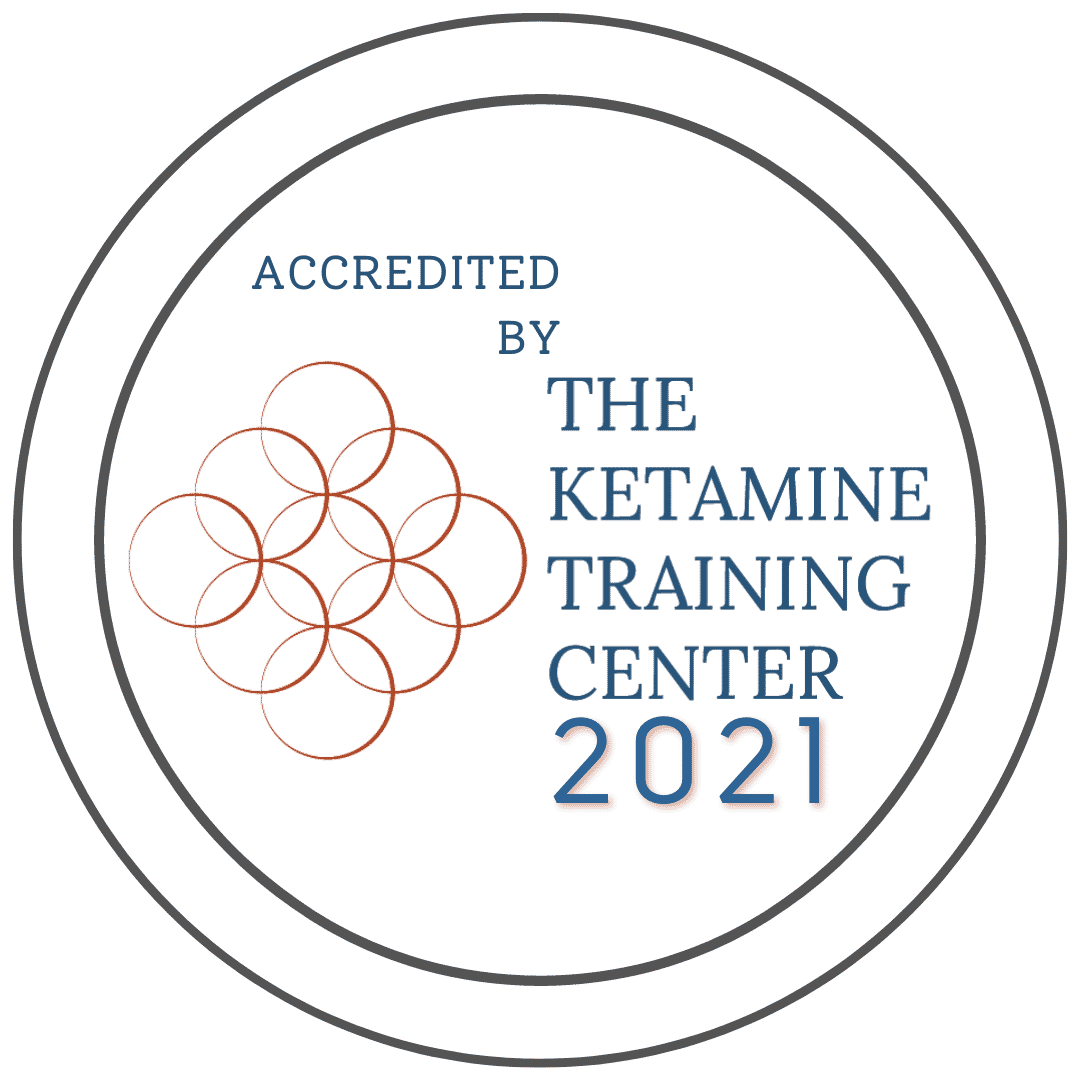

Who Is Not a Good Candidate for Ketamine Therapy?
Ketamine is a controversial psychedelic drug. It has a long history of medical and illicit use. More recently, researchers have discovered that ketamine can treat mental health disorders. Depression is one of the most common mental health disorders out there. It can impact anyone of any age. Some types of depression are situation-specific, while others are chronic and unyielding. Unfortunately, rates of depression in the West continue to rise at an alarming rate.
According to a Gallup poll, 29% of adults in the United States have received a depression diagnosis at some point in their lifetime. After diagnosis, many of these people respond favorably to available treatments. Some of the most common treatments for depression include antidepressant medications and psychotherapy. Less typical treatments may include transcranial magnetic stimulation (TMS) or electroconvulsive therapy (ECT).
Unfortunately, not everyone gets good results from readily available treatments. People who don’t respond well to traditional treatments may have treatment-resistant depression. These people are at a higher risk of suicide and often have a lower quality of life than others. For them, ketamine therapy may be the last and best hope for a cure. Ketamine is a very powerful hallucinogen. Therefore, it’s not appropriate for everyone. Learn who is a good candidate for ketamine and who is not in this guide.
What Is Ketamine?
Ketamine is a promising new solution for treatment-resistant depression and other mental health disorders. The drug itself is not new, but its use as an antidepressant is. Prior to 1970, ketamine was primarily used to sedate soldiers and other patients for surgery and pain management. It also has a colorful history as a recreational drug. It has never been legal for recreational use.
Today, veterinarians commonly use ketamine to sedate animals before treatment. More doctors are also using ketamine to treat patients with mental health disorders. The powerful psychedelic drug can be very effective when other treatments fail to help. If you’ve tried everything else and feel hopeless, please consider ketamine therapy.
How Does Ketamine Work?
Most antidepressants work by boosting serotonin levels in the body. They also block the reabsorption rate of serotonin in the nerve cells. By doing this, they ensure that higher amounts of serotonin remain in the body. Serotonin is a neurotransmitter that’s intimately involved in happiness and mood. By keeping its levels increased in the body, patients with depression may feel improved feelings of happiness and elevated mood.
Ketamine works on depression differently. Instead of flooding the body with serotonin, it activates a chemical called glutamate in the brain. Like serotonin, glutamate helps regulate mood. Ketamine also stimulates a protein in the brain called neurotrophic factor. This protein increases the brain’s ability to adapt to situations and experiences, also known as neuroplasticity.
People with depression often have low neuroplasticity in specific brain regions. By increasing neuroplasticity, ketamine helps the brain form new, healthier thought patterns. The effects of ketamine on treatment-resistant depression are often evident within one hour of treatment. Standard antidepressants, on the other hand, usually take weeks to make a noticeable difference in mood.
Who Is a Good Candidate for Ketamine?
Ketamine is not appropriate for everyone. Your provider will ask you a series of questions before recommending this treatment. They know how to properly screen potential patients to determine who is a good candidate for ketamine therapy. Here are some of the factors that help determine whether this treatment is appropriate for you:
- Previous treatment history. If other medications or treatments haven’t worked for your mental health disorder, ketamine may be the best solution.
- The severity of your condition. Severe forms of depression or other mental health illnesses may not respond well to traditional treatments. If you have suicidal thoughts, ketamine may be the best treatment. It provides rapid results, so you don’t have to wait weeks to experience relief from your symptoms.
- Personal goals and preferences. Your treatment goals are important when considering whether ketamine is the right choice. Your provider will meet with you to ensure ketamine will yield satisfactory results.
- Contraindications. Let your provider know if you have substance abuse disorders, allergies, or hypersensitivities. It’s very important to consider all possible contraindications before receiving ketamine treatment.
Ultimately, you can’t know whether you’re a good candidate for ketamine unless you’re evaluated. Schedule a consultation to learn if ketamine therapy is right for you.
Who Is Not a Good Candidate for Ketamine?
When administered by a skilled medical professional, ketamine therapy is a safe and effective treatment. However, some people are not good candidates. You should not receive ketamine therapy if you:
- Are pregnant or breastfeeding
- Are younger than 18
- Have a family history of schizophrenia
- Have a history of psychosis
- Have reacted adversely to anesthetics in the past
- Are allergic to ketamine
- Have a history of substance abuse
- Have uncontrolled hypertension
- Have had a previous negative experience with ketamine therapy
- Have acute cardiovascular disease
If you’re unsure whether you qualify for ketamine therapy, it’s worth scheduling a consultation. After evaluating you, a doctor can determine whether you’re a good candidate. Even if you aren’t, your doctor may be able to suggest other alternative treatments.
What Are the Different Types of Ketamine?
There are different forms of ketamine available. You can either experience a full dose or microdose Ketamine like celebrities and Elon Musk. Your doctor can help you choose the right form for your needs, treatment goals, and preferences. Here’s a brief overview of the various ketamine types and how they differ from each other.
Ketamine IV Drips
Ketamine IV drips are highly effective because they go directly into your veins. From there, they can quickly travel to the brain via the bloodstream. In one study, patients who received repeated ketamine infusions experienced a 47.2% drop in depression symptoms. For these reasons, IV infusions are often preferred over other types of ketamine treatment.
Your doctor will carefully calculate how much to administer to ensure you get the right amount of active ingredients for your size and needs. Usually, ketamine infusions take less than an hour to administer. You should never receive these infusions outside of a controlled clinical setting.
Ketamine Lozenges
Ketamine lozenges (also called ketamine troches) are for oral use. You don’t have to have a doctor in a clinical setting give them to you. Instead, you can administer them yourself at home. Ketamine lozenges offer users a great deal of administrative freedom. However, you should still take them only as directed by your healthcare provider. Ketamine lozenges are less expensive than other forms of ketamine therapy. They also show promising benefits for chronic pain management.
To take ketamine lozenges, dissolve them in the side of your cheek or beneath your tongue. This helps them travel to your bloodstream quickly. Though ketamine lozenges are not as bioavailable as IV infusions, they still offer rapid results. For the best results, your doctor may recommend ketamine lozenges with other types of ketamine therapy.
Esketamine Nasal Spray
Esketamine is a drug that’s derived from ketamine. It comes in a nasal spray form that was approved by the U.S. Food and Drug Administration in 2019. Esketmaine nasal spray can help relieve depressive symptoms when combined with an oral antidepressant. It’s easy to administer and can help relieve treatment-resistant depression.
What Medical Conditions Can Ketamine Treat?
Ketamine is not a cure-all drug. It shouldn’t be the first drug of choice for any condition. But it is a powerful solution for people who can’t get relief any other way. Ketamine therapy can treat a variety of mental and physical health conditions, including:
- Depression. This treatment is beneficial for treatment-resistant depression. It can also reduce suicidal ideations.
- Post-Traumatic Stress Disorder (PTSD). People often develop PTSD after one or more traumatic events. PTSD can cause anxiety, depression, panic attacks, and other disruptive symptoms. Ketamine therapy may help relieve symptoms.
- Anxiety. Many patients with anxiety find great relief through ketamine treatments. By helping the brain form new pathways, ketamine can help alleviate anxious feelings.
- Migraines. People with chronic migraines may find that ketamine therapy relieves their pain.
- Neuropathy. Tingling, pain, and other neuropathy symptoms often respond well to repeated ketamine treatments.
- Complex Regional Pain Syndrome (CRPS). Ketamine may provide pain relief for people with CRPS by interrupting pain signals.
- Fibromyalgia. Many patients with fibromyalgia experience pain relief through ketamine therapy.
If you don’t see your particular health condition here, consider scheduling a ketamine consultation. Your doctor will evaluate you and ask you questions. Then, they’ll determine whether ketamine is right for your situation.
Find Out if Ketamine May Be the Right Solution for You
If you’ve tried various treatments for depression without success, please don’t give up hope. Ketamine is an unconventional therapy that frequently delivers remarkable results. It’s still considered a controversial drug. However, there’s no denying its positive impact on treatment-resistant depression and other mental health disorders.
If you’re not sure whether you qualify for ketamine treatment, don’t worry. Ketamine Therapy at Therapeutic Alternatives (K Therapy SLC) can determine whether you’re a good candidate. Contact us today at 720-326-6028 to schedule your ketamine therapy consultation.
Our dedicated team of professionals is here to help support you along your Ketamine journey, no matter what you need to use Ketamine for or the type of Ketamine your body needs. In addition, we are here to educate you on Ketamine aftercare and recovery so you make the most of this remarkable journey.
Schedule a Ketamine
Treatment Consultation
Schedule an appointment via call or text at (385) 685-1410 or fill out the form below:
By submitting this form you agree to be contacted via phone/text/email
Schedule a Ketamine
Treatment Consultation
Schedule an appointment via call or text at
(385) 685-1410
or fill out the form below:
By submitting this form you agree to be contacted via phone/text/email


